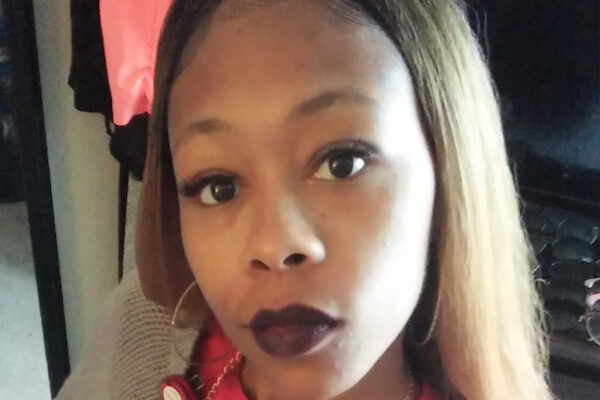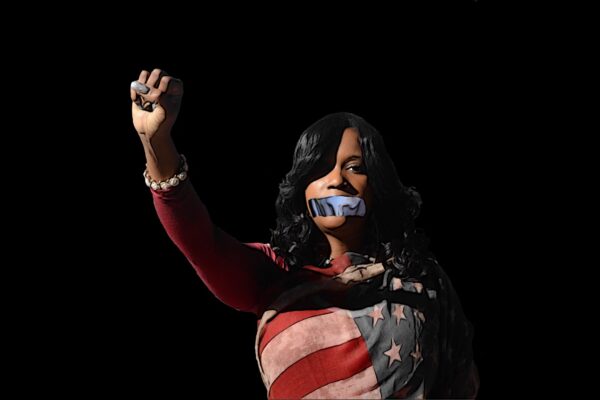“I stood up for what’s right and I am absolutely ecstatic about this ruling in favor of the people and their free speech rights,” said Ashley Overbey Underwood, who challenged Baltimore’s gag order policy. “People should be able to tell their stories and defend themselves when they are seeking justice, especially when the City gets to tell their side. It gives me hope that we can see change for people and movement for police reform.”
Overbey v. Mayor of Baltimore was brought by Ashley Overbey Underwood, a woman improperly denied half of her settlement award after responding to comments online about her experience of being brutalized by Baltimore police. Joining Ms. Overbey as a co-plaintiff in the case is the Baltimore Brew, a news organization denied its First Amendment and statutory rights to obtain newsworthy public information from victims of police abuses.
"We are thrilled to see the judges affirm in such strong, clear language the unconstitutionality of these 'gag orders,'" Fern Shen, editor and publisher of Baltimore Brew said. "We hope their legal analysis - demonstrating the harm these agreements do to individuals and to the press as it reports on this extremely important city issue - will prevail as the case moves forward.”
From the U.S. Court of Appeals decision: “We hold that the non-disparagement clause in [Ms.] Overbey’s settlement agreement amounts to a waiver of her First Amendment rights and that strong public interests rooted in the First Amendment make it unenforceable and void.”
“This victory sends a strong message that the First Amendment must belong to all of us,” said
Dana Vickers Shelley, Executive Director of the ACLU of Maryland. “For too long, the First Amendment has failed to protect the voices of communities who have been systematically suppressed. In Baltimore, this has been Black and Brown residents who have been denied their right to share their stories of surviving police abuse in order to get any measure of justice from the government– but no more.”
The U.S. Court of Appeals decision makes clear:
[W]hen the government (1) makes a police-misconduct claimant’s silence about her claims a condition of settlement; (2) obtains the claimant’s promise of silence; (3) retains for itself the unilateral ability to determine whether the claimant has broken her promise; and (4) enforces the claimant’s promise by, in essence, holding her civilly liable to itself, there can be no serious doubt that the government has used its power in an effort to curb speech that is not to its liking. The First Amendment is meant to serve as a bulwark against such exercises of government power.
“We are elated that the Appellate Court understood the vital interest survivors of police misconduct have in speaking out about their experiences, and that the Court understood the power dynamic in play here, which made it impossible for plaintiffs to say no to the City’s unconstitutional demands,” said
Deborah Jeon, Legal Director for the ACLU of Maryland. “This ruling is a home run for the First Amendment, which is especially important in this cutting-edge case at the intersection between free speech and racial justice.”
The case, filed in June 2017, was dismissed with insufficient consideration by now retired U.S. District Court Judge J. Frederick Motz. Saying that decision was flawed, Chief Judge James K. Bredar then reopened the case and assigned it to Judge Marvin Garbis. In November, Judge Garbis ruled that Baltimore Brew lacked standing and that Ashley Overbey had waived her First Amendment rights when she signed a 2014 non-disclosure agreement with the city. Both of those rulings have now been overturned on appeal. The ACLU and pro bono counsel Crowell & Moring, LLP, appealed that ruling and today’s decision from the U.S. Court of Appeals overturns it.
Said Daniel Wolff, lead pro bono counsel from Crowell & Moring LLP: "In the current era where social media has helped shine a light on, and heightened the public's awareness of, police brutality, especially in black communities, this decision underscores the importance of the constitutionally protected right of citizens to speak freely and critically about the government, and the strong public interest in allowing survivors of police brutality to continue to tell their stories."
Ashley Overbey and the Baltimore Brew are represented by Daniel Wolff, Nkechi Kanu, and Tyler O'Connor of Crowell & Moring LLP, as well as ACLU of Maryland Legal Director
Deborah Jeon and Legal & Public Policy Counsel
Nick Taichi Steiner.
###




